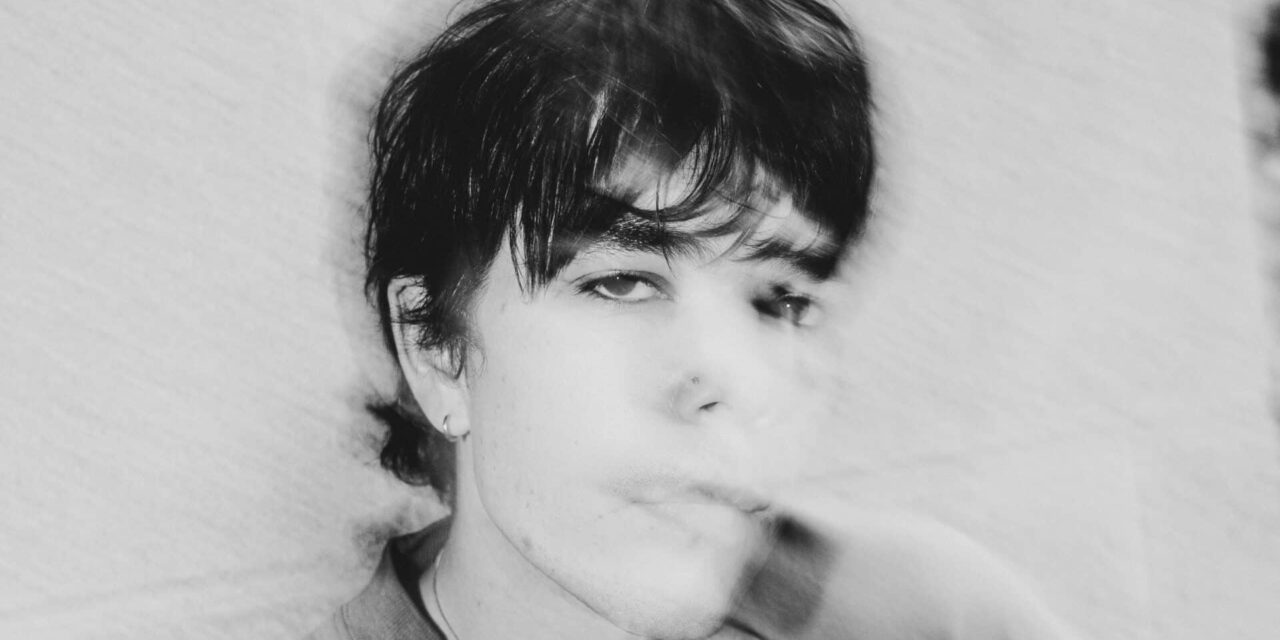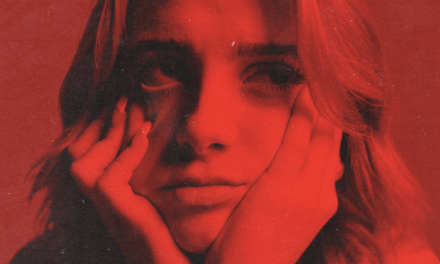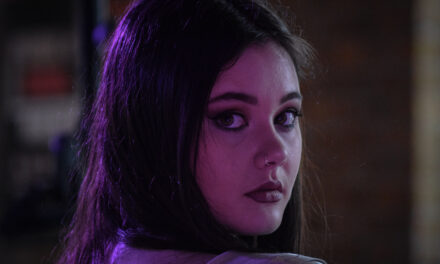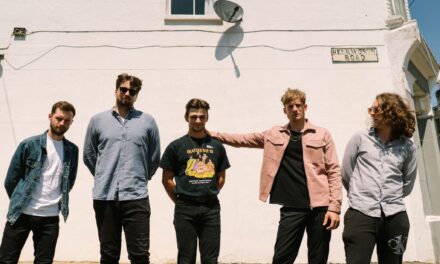In Los Angeles, where pop trends rise and fade with every scroll, Phantom Pink refuses to play the algorithm’s game. Instead, the Spanish-American artist crafts music like film — sprawling, impressionistic, and charged with the volatility of real life. With glass-shattering sound design, lyrics pulled from manic highs and depressive lows, and a persona built on mystique, Phantom Pink is less a singer-songwriter than a full-blown antihero. His upcoming record follows like a movie — complete with climax, silence, and resolution — and positions him as one of the most daring voices shaping the future of dark pop.
MUNDANEMAG: Let’s start from the end. You’ve said the new single feels like being “at the right place at the right time,” but also like a departure from your debut. Tell us about the track and how it came together.
PHANTOM PINK: It actually started with this intro riff I wrote while drunk at home with friends. I literally secluded myself with my guitar for a second, played that riff instantly, and thought, “Oh my God, I have to show people this.” Every single person I played it for said, “This is the one. Keep writing.” No one had ever said that before. So I built the song around that moment.
I liked the idea of the song being like a house you’re moving through — glass breaking at the start and at the end, locks being changed, basements flooding, trophies in cases. It’s almost like a hurricane blasting through someone’s life. Whether or not you like it, I’m putting you through something. It’s about inconveniencing people — and that’s where it began and ended for me.
MUNDANEMAG: That domestic imagery and even the glass shattering feel very cinematic. Does film play a role in your writing?
PHANTOM PINK: Definitely. When I first moved to LA I did sound design and scoring for films, so creating atmosphere is second nature to me. That’s where the glass breaking came from. It’s not a sound you usually hear in songs; I wanted a shock factor.
I love horror that takes place in ordinary spaces — domestic horror, like Possession, which inspired this track. A marriage, a house, a family. That sense of unease within the familiar. A lot of songs on the upcoming record are like that — atmospheric, impressionistic, you feel the colors, you feel the sounds.
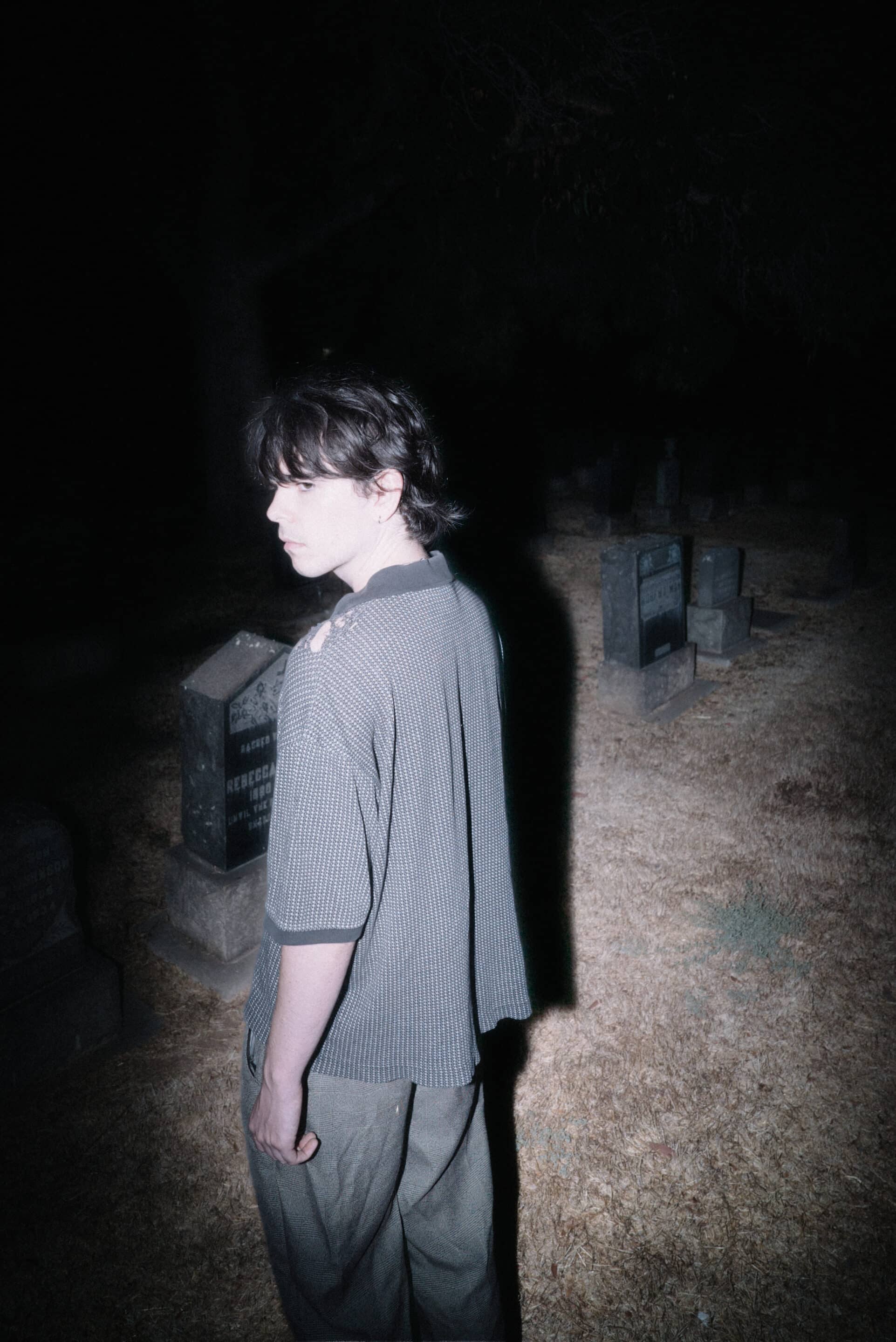
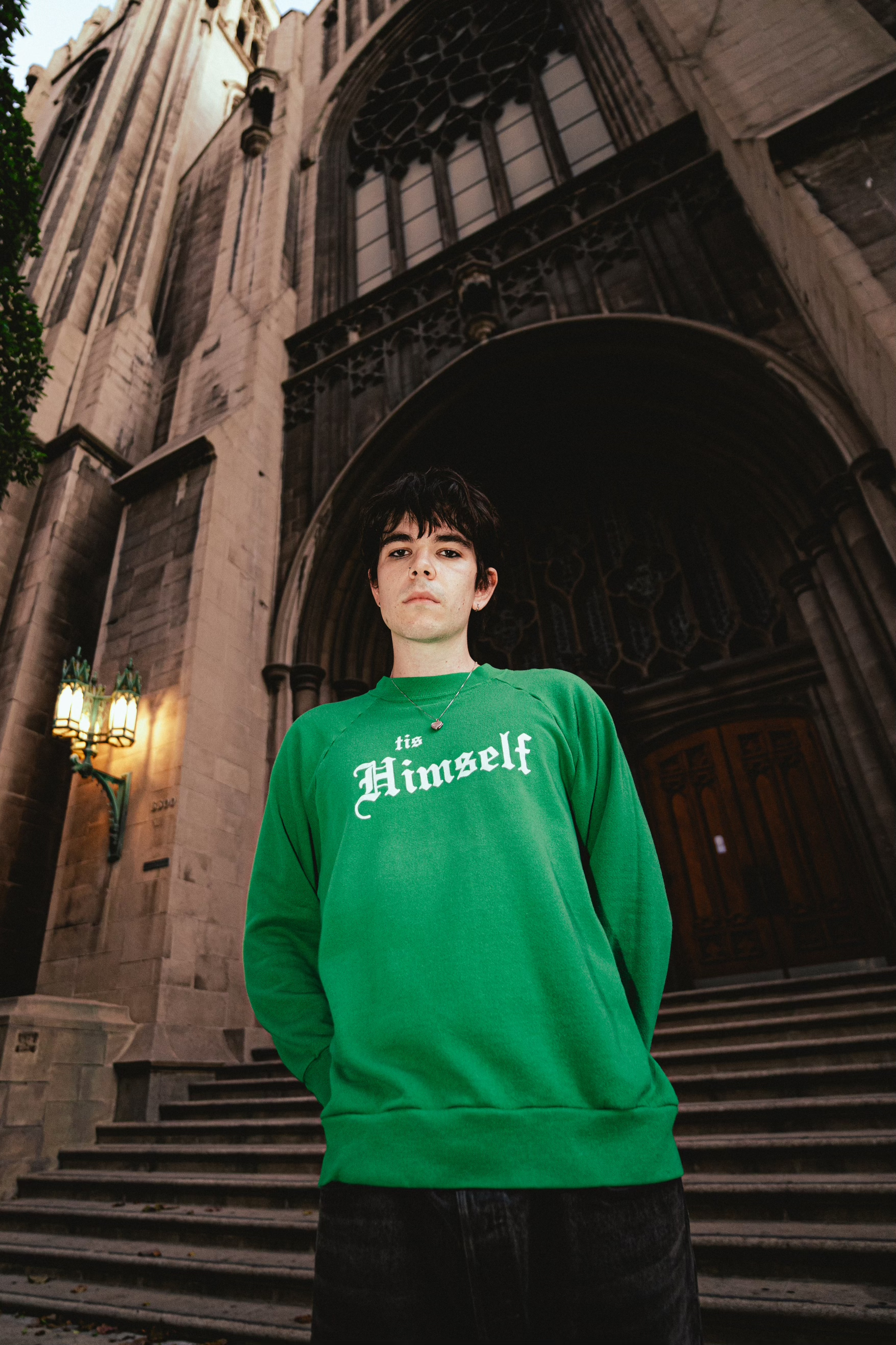
MUNDANEMAG: How does your background in scoring influence your approach to songwriting?
PHANTOM PINK: Scores aren’t structured like pop songs — they follow emotion, not a verse/chorus/bridge template. That’s how I write. I love pop, but I’m never thinking “this needs a pre-chorus.” It’s about where the feeling leads you.
This new record plays like a movie, with a beginning, a climax, a resolution. “I’m at the right place at the right time” becomes a horror movie inside someone’s house — sweet at first, then off-putting, then manic. I wanted listeners to start calm and end up in a manic state by the song’s climax, like bipolar peaks and valleys.
MUNDANEMAG: You’re very open about those peaks and valleys. How does your mental health show up in the music?
PHANTOM PINK: I have bipolar disorder, and I think the song mirrors that — the valleys, the bridges where “nobody calls,” then a pick-up again, more hectic than before, until it breaks. Nobody can deal with you anymore. That’s the arc.
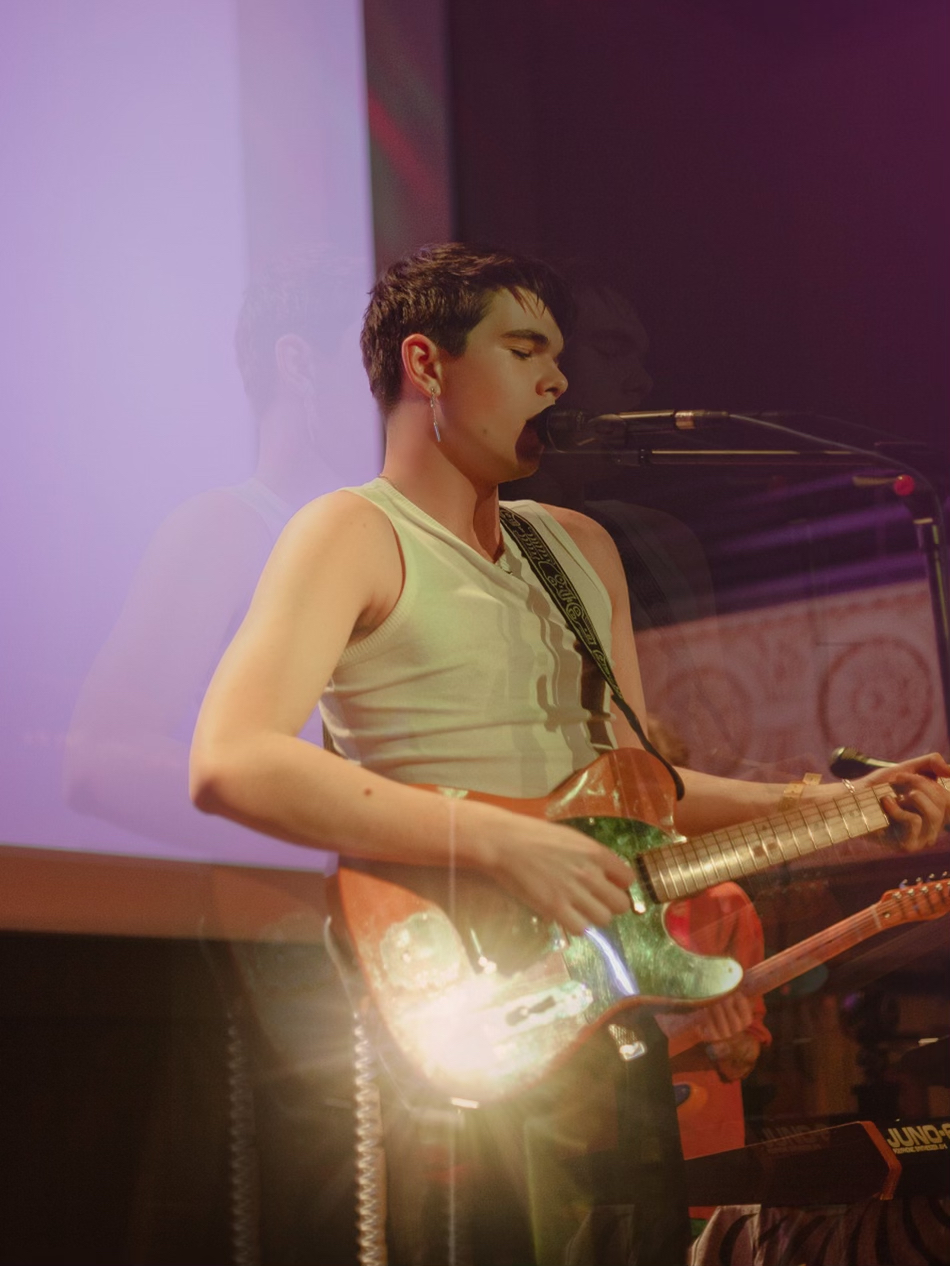
MUNDANEMAG: What about the full record? Does it follow the same trajectory?
PHANTOM PINK: The album’s full of variance — high highs, low lows. I’m playing with silence for the first time, stripping things back completely. Sometimes silence is more interesting, more off-putting, than sound.
It follows an antihero: someone who means well but might not be doing well. Manic states of “I’m the greatest thing that’s ever happened” collide with depressive lows of “I’ll never be the hero.” Sonically and lyrically it’s the most complex thing I’ve done.
MUNDANEMAG: You seem proud of this work in a way that feels new.
PHANTOM PINK: Definitely. Most of the time, you don’t want to listen back to your own songs — you’re too invested. But with this, I know I’ve written my best lyrics.
I even thought I’d ruined the song at one point. I was late on my mixing deadline, tried recording vocals in a manic state, and they weren’t right. So I recorded five takes in the moment without finalized lyrics, sent it off to my mixer thinking it was horrible. When it came back, I realized it was great. Sometimes you just hear it wrong.
MUNDANEMAG: Why the name Phantom Pink?
PHANTOM PINK: I didn’t want to be Brayton Walls. The music didn’t sound like that name. I wanted something spectral, airy, mysterious. My girlfriend at the time suggested “Pink Phantom.” We flipped it to “Phantom Pink,” and it suddenly felt like an antihero, a persona. I like having haze between me and the audience — letting people fill in the blanks. Mystique makes you more relatable in a way.
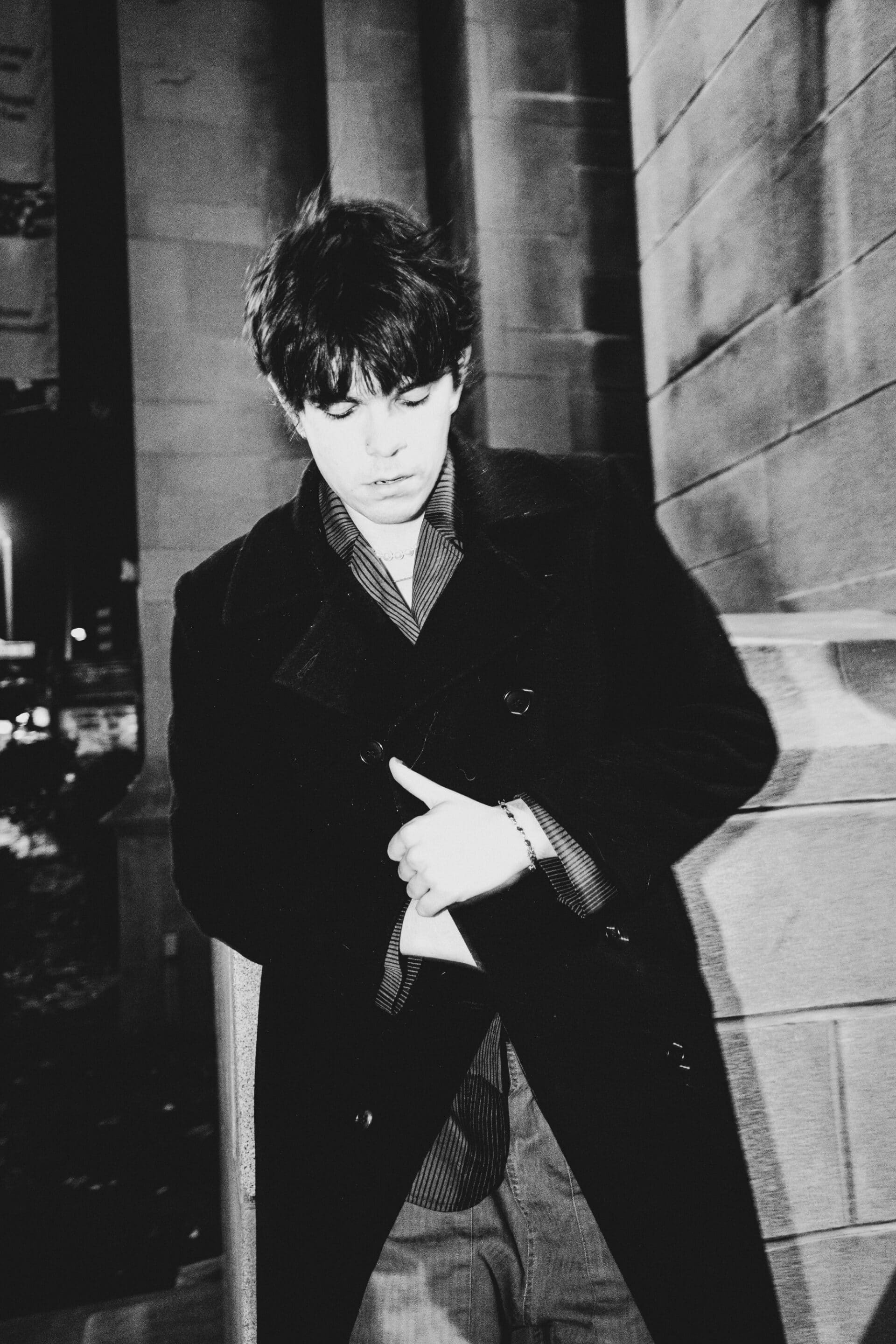
MUNDANEMAG: How has living in Los Angeles shaped you?
PHANTOM PINK: When I first moved here, I got sucked in. I thought I’d made a mistake. But the more I said no to clubbing and TikTok soundtrack culture, the more I found my people. LA is a mirror — your vibe attracts your tribe.
Now, two years in, I’ve survived my dark LA era. I’ve found great musicians, great friends. People here get a bad rap, but most want to help. This album lives in that uncertainty — trying to be good, but sometimes not being good.
MUNDANEMAG: You teased the next album at the end there. What can you tell us?
PHANTOM PINK: I’ve got a few demos I’m excited about. I see Phantom Pink as a trilogy of records, each telling a separate part of the character’s journey. The next record will be a more mature, thoughtful, less destructive version — still uncertain, but evolving. Once you get past the bottom level of necessity, you’re affected by the world outside you. That’s the next step in fulfillment for me, and for Phantom Pink.
Phantom Pink’s new single takes listeners through glass-shattering mania and back again, proving that sometimes the most thrilling records aren’t just heard — they’re experienced.

